第3章
Were there no advantage to be reaped from these studies, beyond the gratification of an innocent curiosity, yet ought not even this to be despised; as being one accession to those few safe and harmless pleasures, which are bestowed on the human race. The sweetest and most inoffensive path of life leads through the avenues of science and learning; and whoever can either remove any obstructions in this way, or open up any new prospect, ought so far to be esteemed a benefactor to mankind. And though these researches may appear painful and fatiguing, it is with some minds as with some bodies, which being endowed with vigorous and florid health, require severe exercise, and reap a pleasure from what, to the generality of mankind, may seem burdensome and laborious. Obscurity, indeed, is painful to the mind as well as to the eye; but to bring light from obscurity, by whatever labour, must needs be delightful and rejoicing.
But this obscurity in the profound and abstract philosophy, is objected to, not only as painful and fatiguing, but as the inevitable source of uncertainty and error. Here indeed lies the justest and most plausible objection against a considerable part of metaphysics, that they are not properly a science; but arise either from the fruitless efforts of human vanity, which would penetrate into subjects utterly inaccessible to the understanding, or from the craft of popular superstitions, which, being unable to defend themselves on fair ground, raise these intangling brambles to cover and protect their weakness. Chased from the open country, these robbers fly into the forest, and lie in wait to break in upon every unguarded avenue of the mind, and overwhelm it with religious fears and prejudices. The stoutest antagonist, if he remit his watch a moment, is oppressed. And many, through cowardice and folly, open the gates to the enemies, and willingly receive them with reverence and submission, as their legal sovereigns.
But is this a sufficient reason, why philosophers should desist from such researches, and leave superstition still in possession of her retreat? Is it not proper to draw an opposite conclusion, and perceive the necessity of carrying the war into the most secret recesses of the enemy?
In vain do we hope, that men, from frequent disappointment, will at last abandon such airy sciences, and discover the proper province of human reason. For, besides, that many persons find too sensible an interest in perpetually recalling such topics; besides this, I say, the motive of blind despair can never reasonably have place in the sciences; since, however unsuccessful former attempts may have proved, there is still room to hope, that the industry, good fortune, or improved sagacity of succeeding generations may reach discoveries unknown to former ages. Each adventurous genius will still leap at the arduous prize, and find himself stimulated, rather than discouraged, by the failures of his predecessors; while he hopes that the glory of achieving so hard an adventure is reserved for him alone.
The only method of freeing learning, at once, from these abstruse questions, is to enquire seriously into the nature of human understanding, and show, from an exact analysis of its powers and capacity, that it is by no means fitted for such remote and abstruse subjects. We must submit to this fatigue in order to live at ease ever after: And must cultivate true metaphysics with some care, in order to destroy the false and adulterate. Indolence, which, to some persons, affords a safeguard against this deceitful philosophy, is, with others, overbalanced by curiosity; and despair, which, at some moments, prevails, may give place afterwards to sanguine hopes and expectations. Accurate and just reasoning is the only catholic remedy, fitted for all persons and all dispositions; and is alone able to subvert that abstruse philosophy and metaphysical jargon, which being mixed up with popular superstition, renders it in a manner impenetrable to careless reasoners, and gives it the air of science and wisdom.